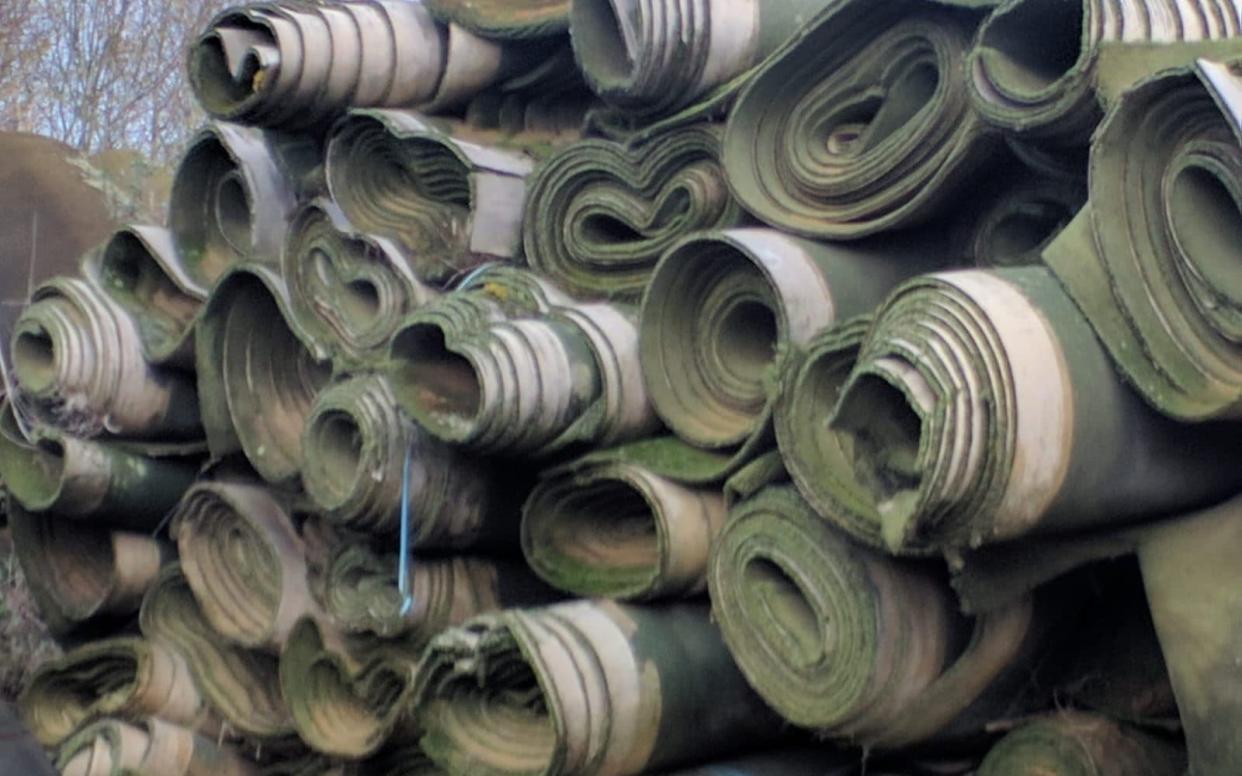Britain has matched just two of the EU’s 13 bans of harmful chemicals since Brexit

Plans to introduce tougher protections for the environment after Brexit have fallen by the wayside, with Britain matching just two of the EU’s 13 bans of harmful chemicals since the end of the transition period, a coalition of green groups warns today.
Despite assurances from Brexiteers that the UK would have more stringent environmental rules after it left the EU, Britain will actually have looser regulations on the use of microplastics, lead in PVC windows and rubber pellets on astroturf pitches, which are thought to be carcinogenic.
Greener UK, a coalition of groups including the National Trust, RSPB, WWF and the Marine Conservation Society, said the UK was now in the “slow lane” on regulating harmful substances, and warned that Britain’s new chemicals regulator was underfunded and understaffed.
Last month ministers published the first restrictions to be introduced by the new domestic regulator, UK REACH.
The body said it will ban the use of lead in ammunition and some harmful chemicals in tattoo ink, but has no plans to restrict a variety of other substances that are already being targeted by its European counterpart.
EU restrictions on the use of harmful microplastics is expected to reduce their usage by up to 90 per cent. The UK’s equivalent restrictions reduce their use by just ten per cent.
Carrie Symonds, Boris Johnson’s fiancee, has campaigned for tighter restrictions on the use of microplastics in her former role as an adviser at the environmental charity Oceana.
The EU is also soon to introduce new controls on rubber pellets used on astroturf pitches, which are said to put football players at increased risk of cancer.

Despite a campaign by Nigel Maguire, a former NHS chief and father of a player who was diagnosed with cancer after using one of the pitches, the UK government has no plans to introduce any new controls.
Greener UK said Britain’s regulator has a budget of just £13m a year, compared to the £85m spent on chemical regulation in the EU.
Libby Peake, a campaigner at the group, said the UK was “in the slow lane” and “getting left behind on tackling plastic pollution and making products, playgrounds and workplaces safer”.
“If this is a deliberate plan to take a different approach, then ministers should explain why these restrictions are not priorities,” she said.
“If it has come about due to a lack of staff or expertise, we need the Treasury to step up and properly fund the responsible UK authorities.”
The news follows several declarations from prominent Brexiteers that the UK’s regulation would be better managed outside the auspices of the EU.
Last year Boris Johnson said Brexit would allow the UK to “dispel the absurd caricature of Britain as a nation bent on the slash and burn of workers’ rights and environmental protection, as if we are saved from Dickensian squalor only by enlightened EU regulation”.
In a Commons debate in 2017, Michael Gove was asked how the UK would manage chemical regulation after Brexit, and responded: “Better.”
A Defra spokeswoman pointed to a raft of government measures aimed at tackling plastic pollution.
She added: “There is more to do though. That is why our ambitious plans for a deposit return scheme will recycle billions more plastic bottles, and why we will introduce a world-leading plastic packaging tax in 2022 to encourage the use of recycled content in plastic packaging.”
Robert Goodwill, a former Defra minister, said Brexit could be a boon for environmental policy, but that the regulation of chemicals needs careful management from Whitehall.
“We don't have to move at the speed of the slowest anymore,” he said.
“However, we may need to focus on what resources we need to give us the data on which to base decisions we're going to make in the future.”
Luke Pollard, the shadow environment secretary, said: “In the middle of a climate crisis the Conservatives must not let Britain fall behind on environmental protection.
“We see big soundbites and announcements from Ministers but little meaningful action.”

